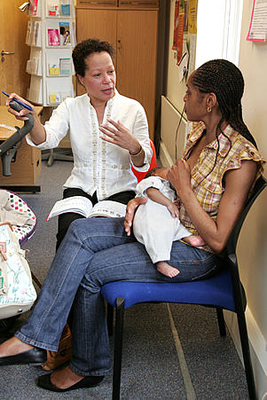Promoting Attachment and Wellbeing Part 1: Concepts


This session is the first of two in this series focusing on attachment and wellbeing. This first session will provide an overview of attachment whilst the second (Positive Parenting and Parenting Issues/Promoting Attachment and Wellbeing Part 2: Practice) will explore the range of attachment-based interventions that help to foster secure attachment.
Learning objectives
By the end of this session you will be able to:
- Define ‘attachment’
- Explain how attachment theory was developed
- Provide an overview of the essential features of attachment theory
- Summarise the key characteristics of the four attachment types
- Identify links between attachment and health and wellbeing
- Understand the relevance of attachment theory to clinical practice
This sesssion aims to help learners understand the key features of attachment theory and its relevance to their work with families particularly with regard to the way that parent-infant relationships develop and the implications of those interactions for the future health and wellbeing of the child.
Before commencing this session you should complete the following HCP session:
- Healthy Child Programme Basics/Introduction to the Healthy Child Programme (402-0016)
Having spent the majority of her working life as a health visitor, Catherine then worked as a nurse consultant in perinatal and infant mental health in a Mental Health Trust for 10 years. Catherine was a member of the guideline development group for the NICE guideline for the management of Depression in Children and was involved in the launch and implementation plan for the 2007 NICE guideline for Antenatal and Postnatal Mental Health. Catherine has always been interested in creating learning opportunities for health professionals that are interesting, accurate, informative and fun. In 2013, in collaboration with colleagues, she was involved in setting up LCB Resources Ltd, a company that produces interactive games for health and social care practitioners. Catherine is currently a full-time PhD student at Oxford Brookes University and is investigating the role of health visitors in supporting women with perinatal mental health issues.


- End of Life Care | Advance care planning | Advance...
- Posted By eIntegrity Healthcare e-Learning
- Posted Date: 2025-01-13
- Location:Online
- This session focuses on principles of good practice which underpin the appropriate and valid use of Advance Decisions to Refuse Treatment (ADRT), within an end of life care context. This session was reviewed by Fiona Rawlinson and Sarah Hanrott and last u
- End of Life Care | Advance care planning | Advance...
- Posted By eIntegrity Healthcare e-Learning
- Posted Date: 2025-01-13
- Location:Online
- This session builds on the principles of advance decisions to refuse treatment. It focuses on the practical steps involved in supporting patients requesting the development of an advance decision. This session was reviewed by Fiona Rawlinson and Sarah Han
- End of Life Care | Advance care planning | ACP in ...
- Posted By eIntegrity Healthcare e-Learning
- Posted Date: 2025-01-13
- Location:Online
- This session describes how the Preferred Priorities for Care tool may be used to facilitate advance care planning. This session was reviewed by Fiona Rawlinson and Sarah Hanrott, and last updated in February 2023.
- End of Life Care | Advance care planning | ACP and...
- Posted By eIntegrity Healthcare e-Learning
- Posted Date: 2025-01-12
- Location:Online
- This session provides an overview of the concept of illness trajectories and its influence on the advance care planning (ACP) process in end of life care. This session was reviewed by Fiona Rawlinson and Sarah Hanrott and last updated in February 2023.
- Acquired Brain Injury course
- Posted By eIntegrity Healthcare e-Learning
- Posted Date: 2025-01-12
- Location:Online
- This session will outline the causes and effects of acquired brain injury (ABI) in childhood. It wil...







